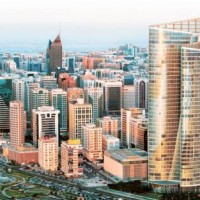Financial pressures, poor communication and the rampant rise of social media have all been blamed for the UAE’s rising divorce rates by counsellors working to put together the pieces of broken marriages.
The rate of divorce may be comparable to that in Europe but the number of couples choosing to split in the UAE is increasing at a faster rate, according to some experts.
Divorce cases rose by seven per cent between 2009 and 2011 for Emirati couples in Dubai, and in Ajman official statistics showed the number of divorces was up four per cent, from 2,351 to 2,443 in 2012-13.
Figures for all divorces in Abu Dhabi from the National Bureau of Statistics have remained relatively stable since 2008, when there were as many as four divorces for every 10 marriages. Numbers dropped in 2011, with courts recording 15,105 marriages and 4,145 divorces – about 2.7 divorces for every 10 marriages.
A report presented to the Federal National Council last year suggested that the divorce rate for 2013 surged to 70 per cent.
Kennon Rider, a marriage and family therapist at the German Neuroscience Centre, said a better statistical method is the refined divorce rate – the number of divorces per 1,000 married women.
“Using this method, the rate for UAE nationals from Abu Dhabi in 2010 was 14.2,” he said.
“To put this in perspective, the divorce rate in the US in 2010 was 19.4. The rate is relatively high and is certainly up from a generation or so ago in the UAE.”
Dr Rider said several driving forces were at play behind the numbers, including the changing expectations of marriage. Once it was primarily a social and economic arrangement to cement relations between families and produce offspring; now, happiness is seen as crucial.
“Young people are now exposed to other ways of thinking about marriage,” added Dr Rider.
“They believe marriage should make them happy. When it doesn’t, they divorce and look for someone else.
“Expectations for expensive lifestyles lead couples to overspend, which adds pressure to early marriage. Couples also seem less tolerant of family intrusion.”
Ignorance and fear are preventing some couples from getting the help they need from counsellors. Unresolved conflicts can lead to tensions, and sometimes infidelity, physical or emotional abuse, experts say.
Jared Alden, a psychotherapist and relationship counsellor in Dubai, said technology is also playing its part in straining relationships.
“Social media figures very highly, easily in 85 per cent of the couples that I see,” he said.
“Facebook is fine but it is the same as an email where it is difficult to understand the tone and make the correct interpretation.
“Problems created by social media feature highly in people’s lives.”
Despite the generational change, marriage is still seen by many as the “gold standard”.
“People can come to Dubai in a relationship but when they move here there can be problems,” Mr Alden said, explaining that issues often arise when a person’s family support network disappears.
Mr Alden said higher rates of divorce could also be a result of a rising UAE population. He sees between 15 and 22 patients each week, half of which are couples. It is a much bigger number in Dubai than elsewhere in the UAE, he said, before suggesting that couples should consider sharing a social media account, to involve each other.
“We ask what their common goal is, then it is about negotiating what they can expect from each other in the environment that they are in,” he added.
“If you go to the movies on a Saturday, you see half the people are on their phones. You question why they have gone to the cinema in the first place.”










